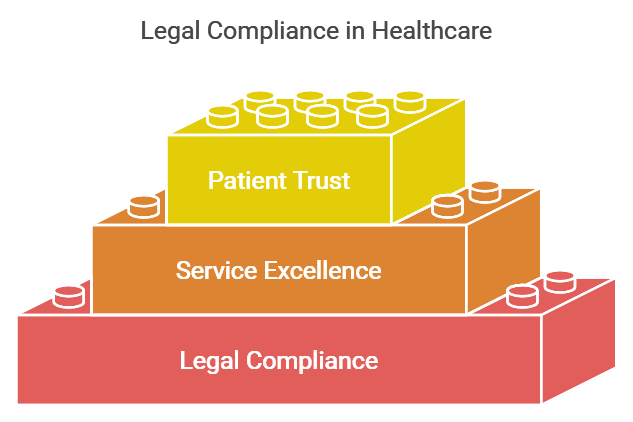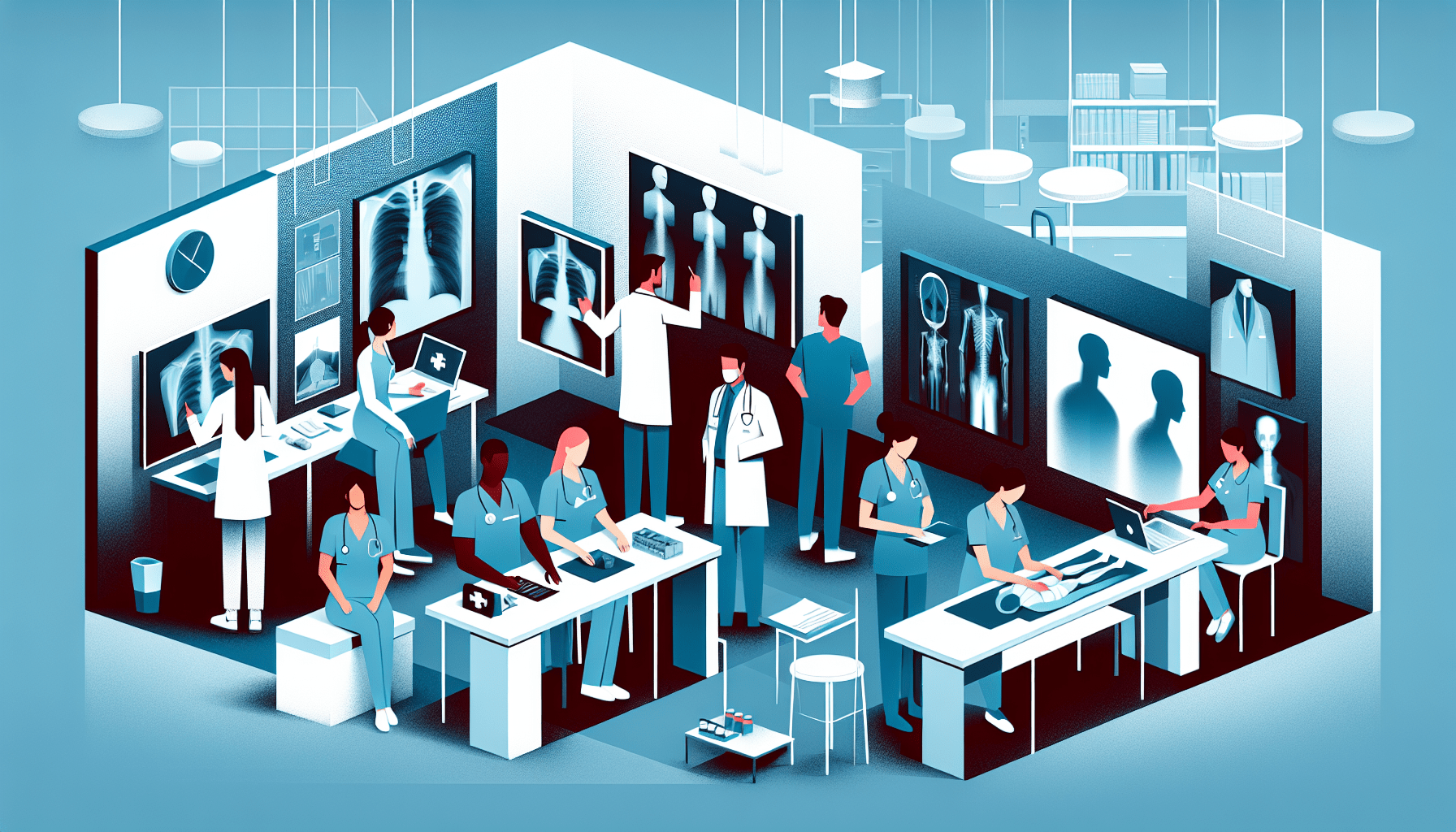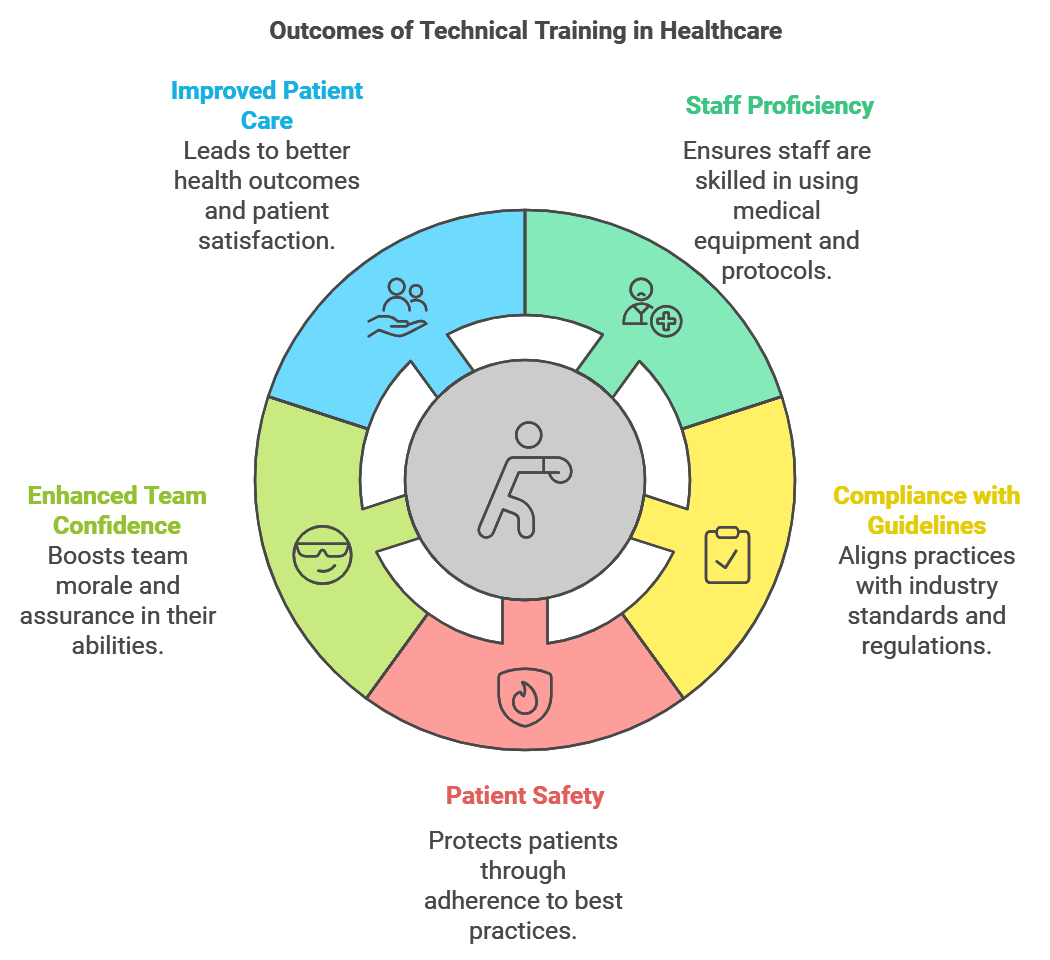Building a Competent Team
In healthcare, having a top-notch crew isn’t just a nice-to-have – it’s essential for excellent patient care. Competence is more than just what you learned in med school; it’s about consistently using your knowledge, skills, and attitudes when stuff gets real. We’ll examine the significant training areas and why technical training is the backbone of a skilled medical squad.
Key Training Areas
Competency assessment programs in healthcare align with an organization’s strategic business, clinical, and learning objectives. They are all about bumping up the quality of care by making sure healthcare staff can deliver effective care every time (HealthStream).
Groups like the Joint Commission and OSHA are the watchdogs for healthcare competency standards. They expect organizations to spell out what skills are needed for those in the business of patient care, treatment, or other services. It’s not a one-time deal, either—these competency assessments need to be ongoing to keep up with healthcare organizations’ evolving goals (HealthStream).
A good competency program focuses on the tricky bits—risky things that are rarely seen, new, or need attention fast. By doing this, healthcare professionals ensure their workers are sharp and can consistently deliver first-rate care.
Importance of Technical Training
Technical training is the secret sauce for equipping your medical staff with the practical know-how required for their gig. A solid tech training program ensures folks know how to handle gear, stick to protocols, and get procedures right without breaking a sweat.
Plus, nailing your technical training is a must to stay in line with all the industry rules and guidelines. By providing detailed technical training, healthcare outfits guarantee staff are following best practices and keeping patients safe and sound.
To shape a formidable medical team, think of technical training as the sturdy ground for medical staff. Healthcare operations that pour resources into a well-rounded technical training agenda empower their teams, instilling confidence and capability, ultimately ensuring higher patient care.
Sprucing Up the Patient Visit
Making a trip to the doctor’s office feel less like a chore and more like a pleasant chat can be a game-changer for medical practices. The secret weapon lies at the heart of a smoother sailing experience: training the front folks. Let’s dive into two must-haves for a killer patient experience: learning to talk the talk and playing by the rules.
Customer Service Training
Let’s be honest: nobody loves waiting rooms or doctor’s offices until you sprinkle a little hospitality fairy dust. That’s what top-notch customer service training can do for a practice. Patients feel the love when you teach your staff to be service ninjas. They make the folks behind the desk experts in empathy, turning what could be a dull, frustrating wait into a surprisingly upbeat experience. Plus, it keeps folks coming back for more.
Training about this stuff is all about talking to people—hearing them out, defusing those sticky situations, and looking after each person’s needs like a pro. When your team handles inquiries with understanding and understands why someone might be worried, it turns the waiting room into a place where people feel cared for. And yes, those happy patients will trust your practice more and spread the good word.
Are you curious about how to train your team into patient-friendly champs? Take a peek at best practices for training administrative staff in medical practices.
Legal Compliance Training

No one wants a courtroom drama in their healthcare script. Legal compliance training may not dazzle like customer service training, but it has teeth when protecting a practice from drama. Get your team clued up about the nitty-gritty of healthcare laws, and you can dodge the legal bulldozer.
Whether we’re talking HIPAA or any other regulation keeping patient info on the low, your staff should be up to speed. When your crew understands what it means to keep things confidential and how to follow the rules, you’re not just keeping your nose clean—you’re respecting the trust patients put in you. Ignoring this isn’t an option. Understanding why it’s important can save you headaches or, worse, provide a sense of reassurance and safety.
To get the full scoop on why legal know-how matters in healthcare, check out whether all medical staff must have HIPAA training.
A medical practice shines brighter by adding a double whammy of customer service excellence and legal smarts to your playbook. It’s not just about ticking boxes; it’s about ensuring every patient’s visit feels right, and everything’s above board. Your team becomes a lean, mean, care-giving machine, ready to zip through legal hoops and create a stellar patient journey.
Maximizing Staff Efficiency
Running a medical practice requires efficient staff who keep things ticking along smoothly. Training your team to be whizzing boosts patient care and keeps everything running like a well-oiled machine. We’re chatting about why getting your crew up to snuff and having them multi-skilled is a game changer.
Staff Efficiency Training
Give your team the lowdown on what they need to do their jobs like pros. Medesk says folks need to get good at talking to each other, organizing their time, and knowing their way around the computer systems that run the practice. There should also be a focus on managing those curveball situations, like emergencies, handling patient chats, and all the admin stuff.
To see if this training is working, monitor things like patient wait times, tight appointment scheduling, and the general hustle of the practice. By regularly sprucing up your team, you’ll keep them ready for whatever healthcare demands are thrown your way.
Cross-Training Benefits
Getting your staff to wear multiple hats can seriously boost practice efficiency. Medesk also reckons that if you let your team learn a bit of everything, it’s like turning them into superheroes—good for stepping up when someone’s off sick or things get hectic.
With cross-training, your practice stands a better chance of keeping things moving smoothly no matter what. These skillful jugglers can step into different roles, keeping patient care top-notch and sidestepping any bumps.
Plus, when everyone knows a bit about what everyone else does, it pulls the team together like a family. Cross-training means better teamwork and banter across different parts of the practice, fostering a sense of unity and collaboration and pushing that efficiency meter into the green zone.
The bottom line is that plowing effort into training and broadening your team’s skills is a smart move for any medical practice wanting to stay on top of its game. With staff regularly brushing up on skills and learning new tricks, you’re setting up your practice for excellent patient care, making the most from your resources, and staying nimble in a fast-moving healthcare setting.
Invest in your medical staff’s growth and competency to revolutionize patient care and operational efficiency. Discover tailored solutions that fit your practice’s unique needs. Empower Your Team Today! with Karma Health. Contact us for expert guidance on competency training and take your practice to the next level.





